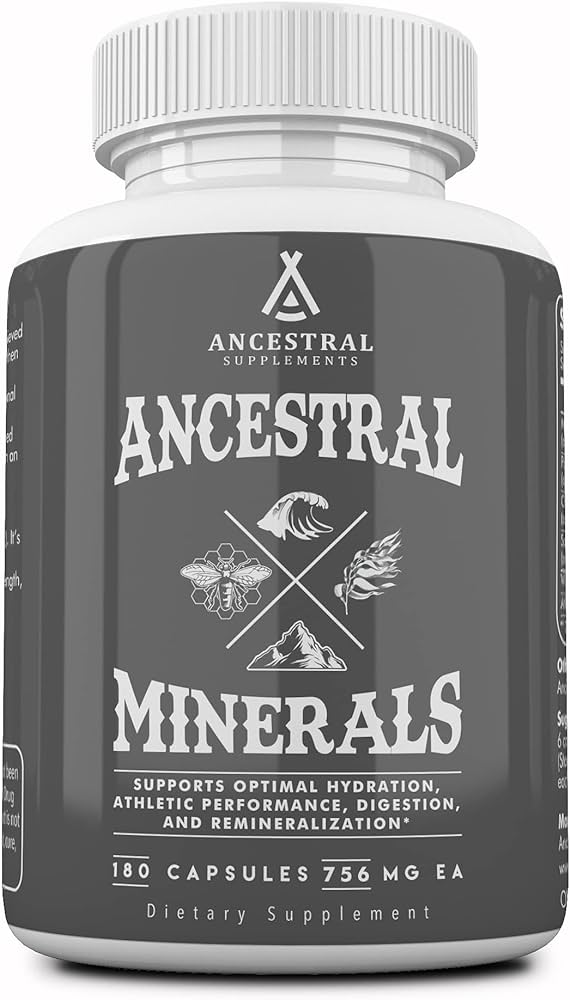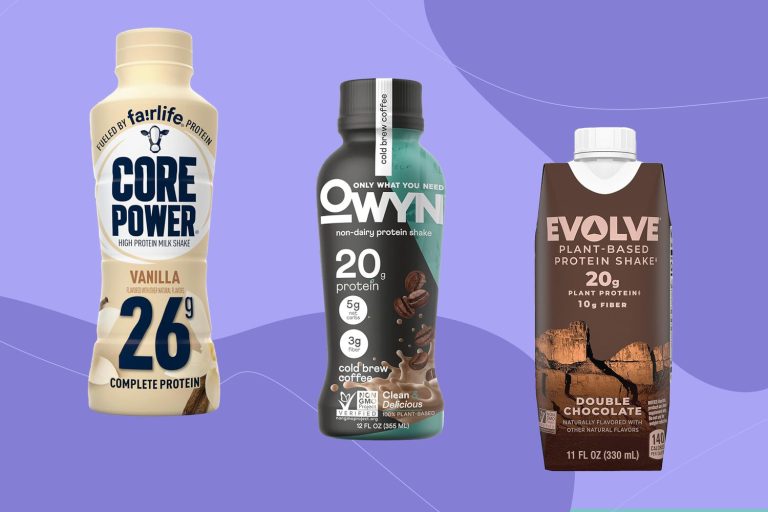9 Best Electrolytes: Essential Minerals for Optimal Health and Performance
Feeling drained after a workout or a long day? Your body might be craving electrolytes. These essential minerals help regulate muscle function, hydration, and overall energy levels. Without enough electrolytes, you can experience fatigue, muscle cramps, and even more severe health issues.
Navigating the world of electrolyte supplements can be overwhelming with so many options available. That’s why we’ve compiled a list of the 9 best electrolytes to help you stay hydrated and energized. Whether you’re an athlete, a busy professional, or just looking to improve your overall wellness, these top picks will keep you balanced and ready to take on the day.
Sodium: Essential for Fluid Balance
Sodium plays a crucial role in maintaining fluid balance in your body. It’s vital for muscle function and nerve signaling.
The Role of Sodium in Hydration
Maintaining proper hydration depends on adequate sodium levels. Sodium helps regulate the amount of water in and around your cells. It ensures your muscles function correctly and helps transmit nerve impulses. When you sweat during exercise, you lose sodium along with water. Dehydration can lead to muscle cramps, dizziness, and fatigue. Replenishing sodium lost through sweat is essential for staying hydrated and maintaining energy levels.
Foods Rich in Sodium
Incorporate foods high in sodium to keep your levels balanced. Some options include:
- Table Salt: A primary source of sodium, adding a pinch to your meals can help.
- Canned Soups: These often contain high sodium levels.
- Deli Meats: Ham, turkey, and roast beef are good sources.
- Cheese: Processed cheeses like American and cheddar are rich in sodium.
- Pickles: This snack is a salty option to consider.
Eating a varied diet ensures you get enough sodium. However, monitor your intake to avoid excessive consumption, which can lead to health issues like high blood pressure.
Potassium: Key for Muscle and Nerve Function
Potassium is a crucial electrolyte that plays a vital role in muscle and nerve functions, helping you stay active and healthy.
How Potassium Supports Heart Health
Potassium helps regulate your heartbeat by balancing sodium levels in your body. It’s known to reduce blood pressure by counteracting the effects of sodium. According to the American Heart Association, adequate potassium intake can lower your risk of stroke and heart disease. By ensuring you get enough potassium, you support healthy heart functions and prevent conditions like arrhythmias.
Top Sources of Potassium
You can find potassium in a wide range of foods, making it easy to incorporate into your diet. Here are some excellent sources:
- Bananas: A single medium-sized banana has about 422 mg of potassium.
- Sweet Potatoes: One medium sweet potato contains around 541 mg.
- Avocados: Half an avocado provides around 487 mg of potassium.
- Spinach: One cup of cooked spinach delivers approximately 839 mg.
- White Beans: A cup of cooked white beans contains about 829 mg.
- Tomatoes: One cup of tomato juice offers around 556 mg of potassium.
- Yogurt: One cup of plain yogurt has about 573 mg.
Including these foods in your meals will help you maintain optimal potassium levels, supporting both muscle and nerve functions as well as overall cardiovascular health.
Magnesium: Crucial for Energy Production
Magnesium is vital for converting food into energy. It plays a crucial role in over 300 enzymatic reactions in your body.
Understanding Magnesium’s Impact on Metabolism
Magnesium helps in breaking down glucose into energy. It activates ATP, the main energy carrier in your cells, ensuring efficient metabolism. Magnesium deficiency can lead to fatigue, weakness, and muscle cramps. In one study, magnesium was shown to improve exercise performance by enhancing oxygen uptake.
Best Dietary Sources of Magnesium
Leafy green vegetables like spinach are rich in magnesium. Nuts and seeds, especially almonds and pumpkin seeds, are also excellent sources. Whole grains such as brown rice and quinoa provide a good amount of magnesium. Including fatty fish like mackerel can help boost your intake. Lastly, dark chocolate, when consumed in moderation, offers a tasty magnesium boost.
Calcium: Vital for Bone Health
The Importance of Calcium Beyond Bones
Calcium isn’t just crucial for maintaining strong bones. It also plays a key role in muscle contraction, blood clotting, and nerve transmission. Without sufficient calcium, your body could struggle with muscle cramps, poor blood coagulation, and impaired nerve function.
Calcium-Rich Foods to Include in Your Diet
Include dairy products like milk, cheese, and yogurt for an easy calcium boost. Almonds, tofu, and leafy greens such as kale and spinach are excellent plant-based sources. Consider fortified foods like orange juice and cereals to further ensure you meet your daily calcium needs.
Chloride: Helps Maintain pH and Fluids
Functions of Chloride in the Human Body
Chloride plays a crucial role in regulating your body’s pH balance. It helps produce stomach acid, which is essential for digestion. Chloride also assists in maintaining proper fluid balance by working with sodium to ensure the proper distribution of water in your body. Additionally, it aids in nerve function and muscle contractions, making it essential for overall bodily functions.
Common Sources of Chloride
You can find chloride in various foods. Table salt (sodium chloride) is the most common source. Other sources include processed foods, cheese, olives, and a variety of vegetables like seaweed, rye, tomatoes, and lettuce. By incorporating these foods into your diet, you can easily meet your daily chloride requirements and help maintain your body’s pH and fluid balance.
Phosphate: Critical for Energy Storage
Phosphate plays a pivotal role in energy storage within your body, essential for overall health and vitality.
Benefits of Phosphate in Energy Transfer
Facilitates Energy Production: Phosphate is integral to your body’s production of ATP (adenosine triphosphate), the primary energy carrier in cells. ATP provides energy for various physiological processes, including muscle contraction and nerve impulse transmission.
Supports Bone Health: Phosphate combines with calcium to form hydroxyapatite, a key component of bone and teeth strength. About 85% of your body’s phosphate is stored in bones and teeth.
Aids Cellular Communication: Phosphate molecules are vital for the function of cell membranes and the regulation of metabolic pathways. These molecules help in the transmission of signals between cells, thereby ensuring efficient cellular communication.
Phosphate in Everyday Diet
Incorporating phosphate-rich foods into your diet helps maintain optimal energy levels and bone health.
Include Dairy Products: Milk, cheese, and yogurt are excellent sources of phosphate. These foods also provide calcium, which works synergistically with phosphate.
Add Nuts and Seeds: Almonds, sunflower seeds, and pumpkin seeds offer significant amounts of phosphate. They’re easy to add to salads or eat as snacks.
Consume Fish: Salmon, mackerel, and tuna are rich in phosphate. Fish not only support energy levels but also contribute essential omega-3 fatty acids.
Eat Whole Grains: Foods like quinoa, brown rice, and whole wheat bread contain high phosphate levels. These grains are also rich in fiber, promoting digestive health.
Include Legumes: Lentils, chickpeas, and black beans are great non-dairy sources of phosphate. They’re versatile and can be added to a variety of dishes.
Optimizing your intake of phosphate-rich foods is crucial for maintaining energy production, bone health, and efficient cellular communication.
Bicarbonate: Regulates Heart Function
Bicarbonate plays a crucial role in regulating your heart’s function and maintaining overall cardiovascular health.
Role of Bicarbonate in Balancing pH Levels
Bicarbonate helps balance pH levels in your body. It acts as a buffer, neutralizing acids and maintaining a stable pH environment. This stability is essential for optimal enzymatic activities and cellular functions. An imbalance in pH can lead to conditions like acidosis or alkalosis, which can disrupt heart rhythms and other bodily functions. Maintaining the right pH balance ensures your heart works efficiently and reduces the risk of cardiovascular issues.
Natural Sources of Bicarbonate
You can find bicarbonate naturally in several common foods and beverages. Baking soda is a well-known source and can be included in recipes or dissolved in water as a supplement. Mineral water, rich in bicarbonate, is another excellent source. Fruits and vegetables like bananas and leafy greens also contribute to your bicarbonate intake. Incorporating these into your diet helps support heart health and proper pH balance.
Sulfate: Supports Detoxification
Sulfate plays an essential role in detoxifying your body by aiding liver function and overall cellular health.
Sulfate’s Role in the Body
Supports liver detox. Sulfate helps your liver process and eliminate toxins through the production of bile acids and the regulation of liver enzymes. Strengthens connective tissues. It contributes to the formation of collagen and the health of joint cartilage, ensuring strong structural support. Enhances enzymatic activities. Sulfate is vital for enzyme function, particularly those involved in detoxification and metabolic processes.
Dietary Sources of Sulfate
Include cruciferous vegetables. Foods like broccoli, Brussels sprouts, and cabbage are high in sulfate, which can aid your detoxification pathways. Consume alliums. Garlic, onions, and leeks not only enhance flavor but also provide a rich source of sulfate. Enjoy protein-rich foods. Eggs, meat, and fish are excellent ways to include sulfate in your diet, supporting your body’s detoxification processes.
Conclusion
Understanding the role of electrolytes is vital for maintaining your overall health. Each mineral plays a unique part in your body’s complex systems, from energy storage and bone health to cellular communication and detoxification. Incorporating a balanced diet rich in these essential minerals can significantly enhance your well-being. Remember to include foods like cruciferous vegetables, alliums, eggs, meat, and fish to ensure you’re getting enough sulfate for optimal detoxification and joint health. By prioritizing your electrolyte intake, you’re taking a crucial step toward a healthier, more balanced life.






